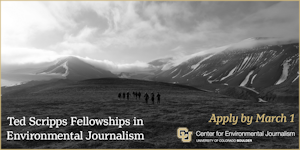"A new report finds that 1 in 4 people in the U.S. are breathing unhealthy air as rising temperatures and bigger fires create a "climate penalty.""
"A choking layer of pollution-laced fog settled over Minneapolis last month, blanketing the city in its worst air quality since 2005. A temperature inversion acted like a ceiling, trapping small particles emitted from sluggish engines and overworked heaters in a gauze that shrouded the skyline. That haze arrived amid the hottest winter on record for the Midwest. Warmer temperatures melted what little snow had fallen, releasing moisture that helped further trap pollution.
Though summertime pollution from wildfire smoke and ozone receives more attention, climate change is making these kinds of winter inversions increasingly common — with troubling results. One in 4 Americans are now exposed to unhealthy air, according to a report by First Street Foundation.
Jeremy Porter, head of climate implications research at the nonprofit climate research firm, calls this increase in air pollution a “climate penalty,” rolling back improvements made over four decades. On the West Coast, this inflection point was passed about 10 years ago; air quality across the region has consistently worsened since 2010. Now, a broader swath of the country is starting to see deteriorating conditions. During Canada’s boreal wildfires last summer, for example, millions of people from Chicago to New York experienced some of the worst air pollution in the world. It was a precedent-breaking spate that saw the average person exposed to more small particulate matter than at any time since tracking began in 2006.
It’s a preview of more to come."













 Advertisement
Advertisement 



